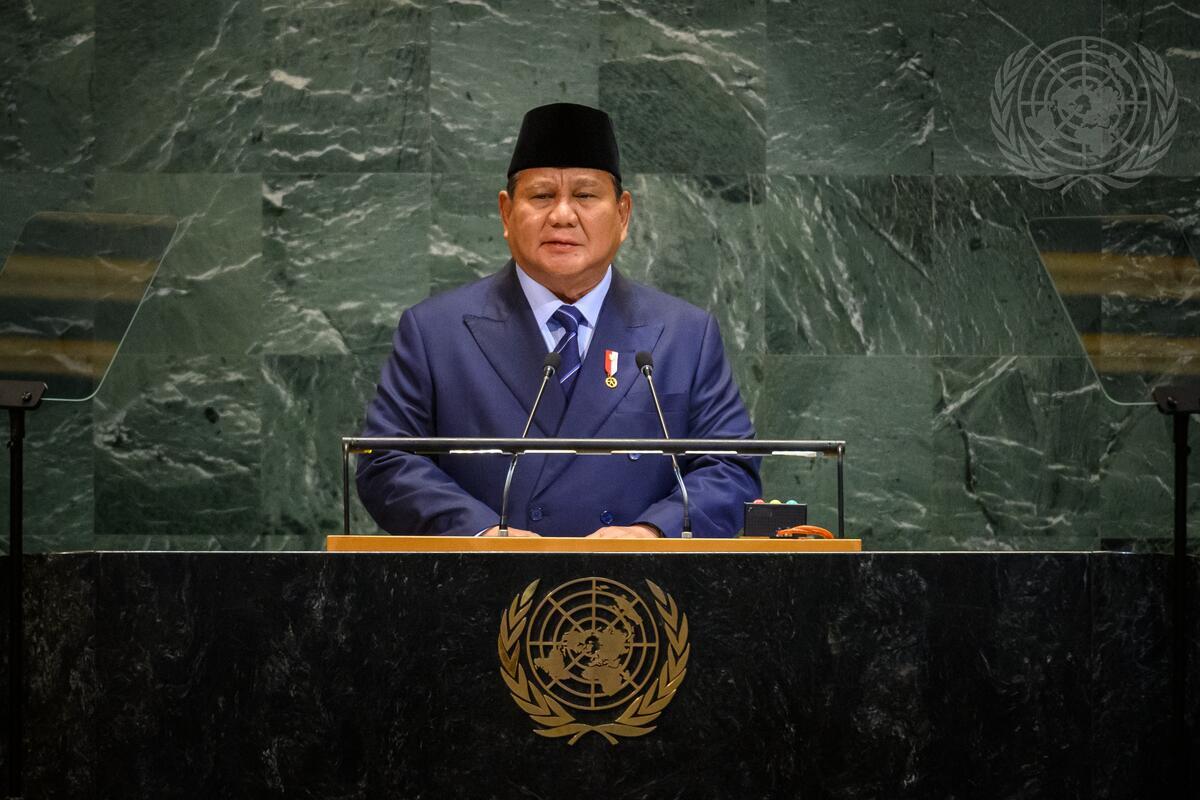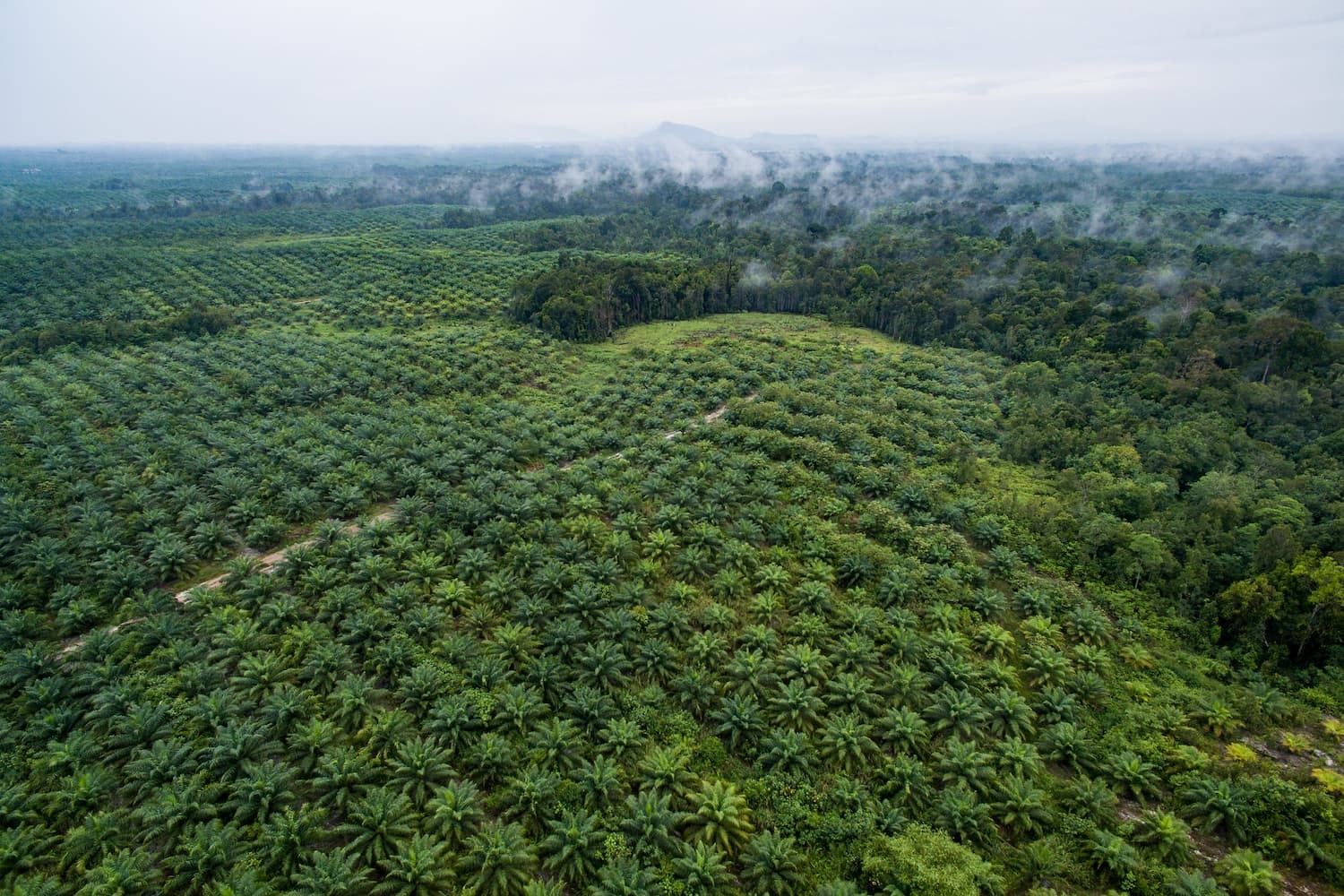
Indonesia’s leader made his first UN General Assembly speech in a decade. (Photo: UN)
Indonesian President Prabowo Subianto delivered a speech at the UN General Assembly on September 23, mentioning the country’s transition toward renewable energy and expressing confidence in achieving net-zero emissions before 2060. On the same day, Indonesia and the European Union signed a historic trade agreement, under which more than 90% of tariffs will be eliminated, with expectations of boosting supply chain diversification in sectors such as palm oil, clean energy, and electric vehicles.
Prabowo’s UN speech addresses climate and energy goals
The General Debate is the highlight of the UN General Assembly each year. This year, Prabowo was the third world leader to take the stage—following Brazilian President Luiz Inácio Lula da Silva and U.S. President Donald Trump—marking the first time in a decade that an Indonesian leader addressed the Assembly.
Speaking on the theme “Better Together,” Prabowo highlighted the importance of peace, justice, and human rights, while also acknowledging Indonesia’s vulnerability to climate change. He pledged to fulfill the country’s commitments under the Paris Agreement and voiced confidence that Indonesia could achieve its net-zero target ahead of schedule.
Prabowo underlined Indonesia’s decisive shift away from fossil fuel–based development toward a renewable energy–driven model. From 2026 onward, most new power generation capacity will come from renewables. He also set a long-term goal of restoring 12 million hectares of forest while creating high-quality green jobs for local communities.
Indonesia and EU sign trade pact, slashing tariffs
On the same day in Bali, Indonesian and EU officials signed the long-awaited Indonesia–EU Comprehensive Economic Partnership Agreement (CEPA), concluding nine years of negotiations. The deal is expected to significantly expand bilateral trade, including renewable energy cooperation.
The EU is Indonesia’s fifth-largest trading partner, with bilateral trade reaching USD 30.1 billion in 2024. The agreement will remove up to 98% of tariffs, most immediately upon entry into force, with the remainder phased out within five years. As a result, trade volume is projected to double.
EU Trade Commissioner Maros Sefcovic said the deal would encourage European investment in Indonesia and improve access to key mineral resources such as nickel, copper, and tin—critical for clean technologies and industries like EVs, pharmaceuticals, and electronics.
EU exporters are expected to save about EUR 600 million (USD 708 million) in tariffs, especially on chemicals, machinery, automobiles, and food products such as milk powder and cheese.
Indonesia expects palm oil, footwear, textiles, and fisheries to benefit the most. Eddy Martono, chairman of the Indonesian Palm Oil Association (GAPKI), welcomed the agreement but cautioned that the EU Deforestation Regulation (EUDR) remains a key challenge for the sector.
EUDR threatens palm oil exports
The EUDR, part of the EU’s green agenda, requires suppliers of soy, beef, palm oil, and other commodities to prove their products are deforestation-free. Martono warned that if smallholder farmers remain excluded from the EU supply chain, zero tariffs would bring little benefit to millions of them.
Greater palm oil exports could boost related products such as biodiesel, cosmetics, and palm-based chemicals. But concerns over subsidies and regulatory hurdles remain. Bhima Yudhistira, executive director of the Center of Economic and Law Studies (CELIOS), said the EUDR is the ultimate test, stressing that Indonesia must strengthen governance to maximize the benefits of CEPA.
 Indonesia is the world’s largest producer and exporter of palm oil.(Photo:Nanang Sujana / CIFOR)
Indonesia is the world’s largest producer and exporter of palm oil.(Photo:Nanang Sujana / CIFOR)
The EU confirmed the agreement includes a protocol on palm oil, though details were not disclosed. Coincidentally, the EU also announced on the same day that it would postpone the implementation of the EUDR by one year, citing concerns about IT system capacity. The regulation, originally set to take effect on December 30, will now be enforced at the end of 2025.
CEPA is the EU’s third trade deal with a Southeast Asian country, following agreements with Singapore and Vietnam. Deni Friawan, a researcher at the Center for Strategic and International Studies, noted that although palm oil and deforestation issues remain unresolved, Trump’s reciprocal tariff policy created urgency for new trade agreements outside the United States, providing momentum for the EU–Indonesia pact.
Source: UN、France24、Jakarta Post、Reuters(1)、(2)、EU、Nikkei Asia、Jakarta Globe、DW
.jpg)


